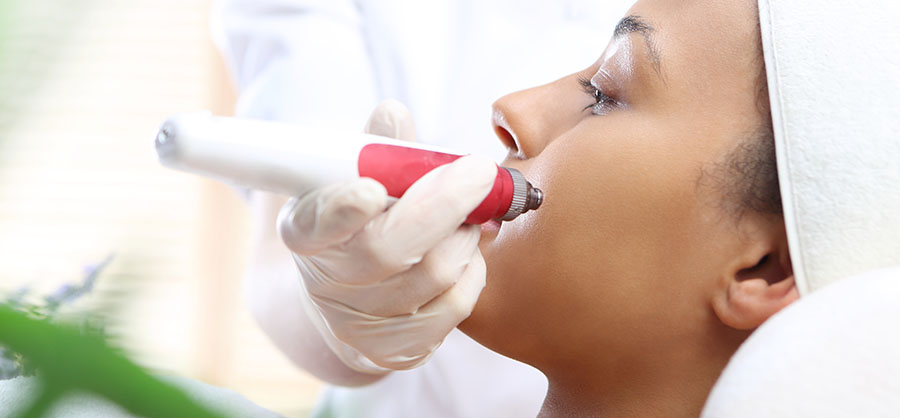
Our skin has an incredible ability to naturally heal itself by producing new collagen and skin tissue. Microneedling is a cosmetic procedure that utilises this natural ability by increasing collagen production and cell turnover. With extensive experience, Dr Tinashe I Maphosa is fully equipped to provide microneedling treatments in cases where other treatments may not have worked or as a final step before more intensive dermatology procedures.
Microneedling is used to target a range of skin concerns, including:
Microneedling is often favoured when other skin treatments, such as chemical peels, have been unsuccessful in eliminating skin concerns. However, Dr Maphosa will first consult with you about your concerns and perform a skin assessment before determining the best treatment option for your condition. This will also depend on your budget and any medication you may be on, such as oral isotretinoin.
Dr Maphosa conducts microneedling treatments in a sterile and comfortable environment for your safety. Although not painful, the procedure involves using an instrument with microneedles that lightly pierce the skin. Because of this, Dr Maphosa will apply a topical anaesthetic to ensure minimal discomfort.
You will be asked to lie on the patient bed, and Dr Maphosa will begin to move the instrument across your face. The microneedling session lasts 30 minutes, followed by a calming treatment to help boost healing.
Following the treatment, you may notice marks all over your face, as well as some redness and inflammation. These will slowly fade and be replaced by rejuvenated skin.
Microneedling is an ideal treatment for various skin concerns and is widely popular as a minimally-invasive procedure. It is not only effective but more affordable than laser therapy and other more invasive dermatology treatments.
Other benefits you can expect from this treatment are:
As you can imagine, your skin is quite sensitive after having tiny holes punctured into it. Therefore, you will need to be mindful of the products, medications, and activities you do after receiving the treatment. Dr Maphosa will inform you of the best and worst practices so that you know what to do and what not to do following the procedure.
It's best to follow these guidelines:
